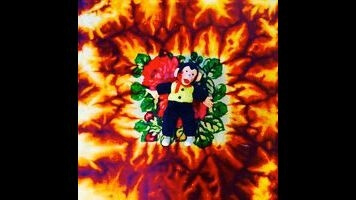Hodgy’s journey to adulthood could use a few more specifics

At this point, the idea of an Odd Future member growing up isn’t necessarily newsworthy. Tyler, The Creator and Earl Sweatshirt—the two best-known members of the hip-hop collective outside of Frank Ocean—have both managed to build careers that move beyond the controversy of their earlier lyrics. That’s not to say they’re completely above rapping about stomach-churning sex, violence, and general juvenilia, but even a sick joke of a song like “Fucking Young / Perfect” at least has a conflicted morality to it. So it’s not just a matter of each artist growing up. That was always inevitable. It’s more about how they grow up. It’s about how age affects their music. After all, that’s the only way most of us will ever get to connect with any of them.
Throughout Fireplace: TheNotTheOtherSide, the first studio album from Odd Future’s old reliable Hodgy, the how means an increased value on responsibility and spirituality. It’s arguably the most unwaveringly moral of any of the Odd Future solo releases, including anything put out by Ocean. Over an immersive jet stream of neo-soul production (the glass-calm choir on “Barbell” couldn’t be further from the demented cartoonery of The OF Tape Vol. 2), he embraces living in the moment on “The Now,” waxes optimistic on “Glory,” and reflects on his faith in “Kundalini.”
While the arrangements radiate an L.A.-centric kind of warmth and there are creative turns of phrase peppered among the lyrics (on “Kundalini,” he vows to cut demons off him like a circumcision), the positivity often suffers from a lack of detail. Hodgy’s never been the most autobiographical writer, but it’s hard to get invested in his personal evolution when several of the songs never move beyond merely acknowledging said evolution. The bars on “Kundalini” are individually creative, and yet they never give us a concrete idea of why his beliefs have changed or now have a stronger conviction. Surely his becoming a father in real life has something to do with it, but that rarely gets talked about. Likewise, “The Now,” “Glory,” “Laguna,” and others are the lyrical equivalent to a self-help book. Even if the message is admirable, it only scratches the surface of what truly goes into personal change. The metamorphosis comes off as too easy; too fully formed. And that somehow makes it feel less real than it actually is.
 Keep scrolling for more great stories.
Keep scrolling for more great stories.
